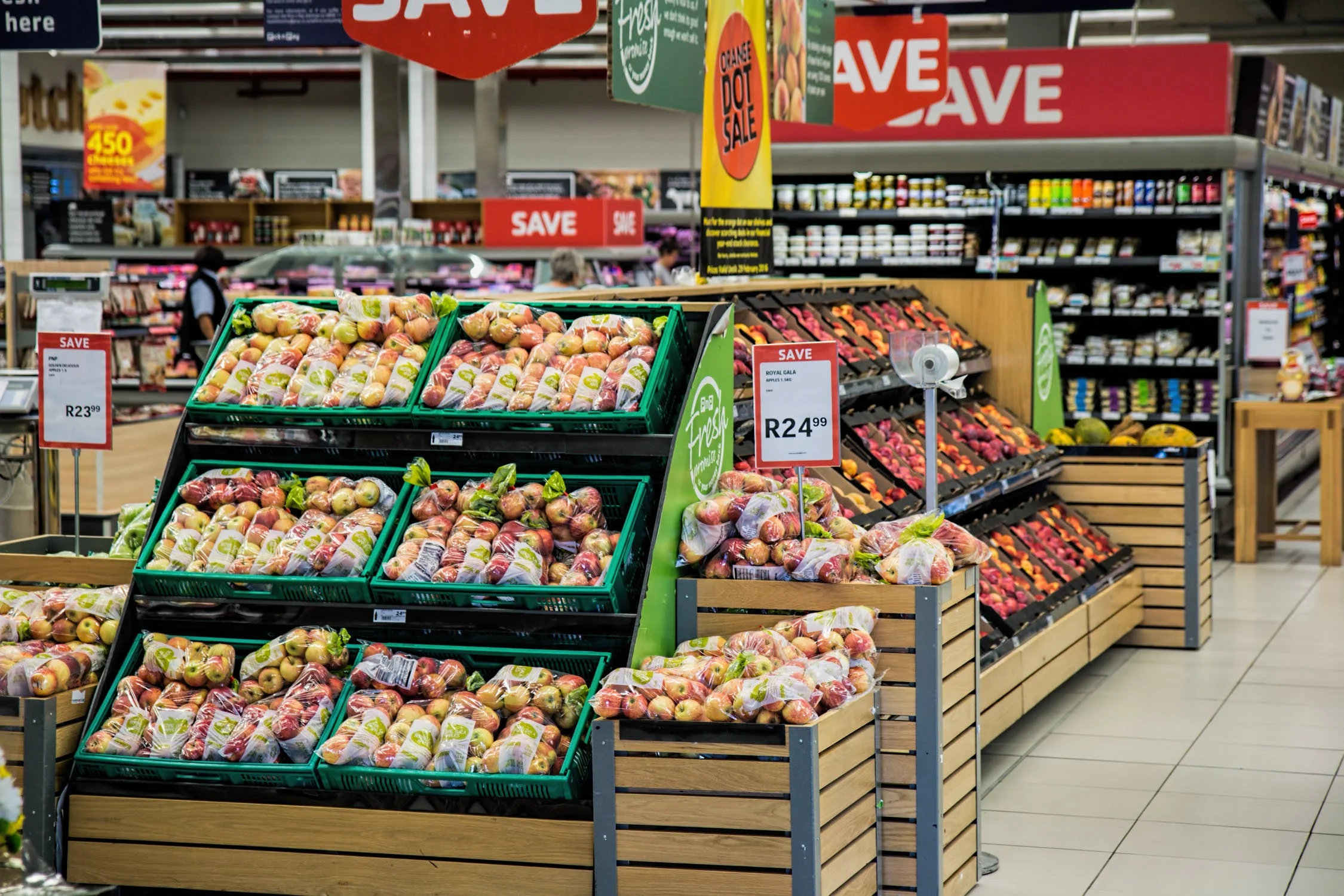Whole Foods Market Expands Topical CBD Products to 359 Locations in 30 States
Photo: Pexels
Originally Appeared in Presence Marketing News, October 2019
By Steven Hoffman
Concerned in the past that it might present itself as a “high profile target” to regulators, Whole Foods Market has moved slowly in carrying natural products made with full spectrum hemp extract and CBD. However, as market demand explodes for these products, Whole Foods is taking the plunge by increasing its offerings of topical CBD products. The leading natural and organic products retailer announced in September it is expanding distribution of topical CBD products, making them available in 359 Whole Foods Market locations in 30 states across the country. Whole Foods also announced it is adding exclusive CBD bath items from Pacha Soap Co. “Our shoppers have expressed a growing interest in CBD products,” said Jennifer Coleman, Global Senior Category Merchant for Whole Foods Market in a press release. “We’re thrilled to roll out topical CBD products in even more stores and to share new, exclusive items from our longstanding supplier partner Pacha Soap Co.” As of September 2019, Whole Foods Market now carries topical CBD products in 30 states including: Alabama, Arkansas*, Arizona*, California*, Colorado, District of Columbia, Georgia*, Illinois, Indiana, Kansas*, Kentucky, Maine, Maryland, Massachusetts, Michigan*, Mississippi, Missouri*, Nevada*, New Hampshire, New Jersey, New Mexico, Oklahoma*, Oregon, Pennsylvania*, South Carolina*, Tennessee, Texas*, Utah, Virginia* and Wisconsin.
As with all body care items sold at Whole Foods Market, the retailer says the new CBD products meet the grocer’s rigorous body care quality standards, which ban parabens, phthalates, triclosan and more than 100 other questionable ingredients used in conventional body care products. (* New distribution as of September 2019.)
Grocery Manufacturers Association Announces Name Change, Renewed Focus
Photo: Pexels
Originally Appeared in Presence Marketing News, October 2019
By Steven Hoffman
The Grocery Manufacturers Association (GMA), representing some of the world’s largest consumer packaged goods companies, on September 26 announced it will change its name to the Consumer Brands Association (CBA), effective January 2020. The new identity is part of a sweeping overhaul of the 110-year old trade organization, led by President and CEO Geoff Freeman and the GMA board of directors. “We represent an industry of iconic brands that are innovative, forward-looking and touch the lives of every American,” Freeman said. As the new Consumer Brands Association, we are making a game-changing shift to unite the totality of the consumer packaged goods (CPG) industry around a focused, proactive agenda that aligns with the values of the brands we represent and the consumers they serve.” In a statement GMA added, “This is about more than a new name or new logo. Our brand change reflects a sea change — we are a new organization, representing the totality of the consumer packaged goods industry and establishing a new presence in Washington and beyond. The transformation of our organization reflects today’s era of transparency and consumer-first thinking.” GMA says its new advocacy agenda represents the broader interests of a modern CPG company by focusing on four core pillars: enhancing packaging sustainability; championing smart regulation; creating frictionless supply chains; and building trust in CPG, while also advancing a narrative about the industry’s social and economic impact. GMA recently released the industry’s first-ever economic study, which found the CPG industry supports more than 20 million American jobs and contributes $2 trillion to the country’s GDP.
OSC2, former Rebbl CEO Sheryl O’Loughlin Partner to Promote Women and Diversity on Natural Products Boards
Photo: Pexels
Originally Appeared in Presence Marketing News, October 2019
By Steven Hoffman
According to natural products entrepreneur and investor Brad Barnhorn, of the nine different boards of directors on which he serves, there are a total of 50 board members and only one of them is a woman. He shared this as the only male panelist on the Women on Boards panel at Natural Products Expo East this past September in Baltimore. “Having more women sit on boards of organic and natural companies is not just the right thing to do, it is the smart thing to do, writes Max Goldberg in the Organic Insider. Based on a study conducted by financial research firm MSCI, U.S. companies with at least three women on the board experienced earnings growth of 37% over a five-year period, while companies that had no female board members experienced a -8% earnings drop in the same period, Goldberg reported. To address the issue, Northern California-based natural products leadership organization OSC2 has formed JEDI, the Justice, Equity, Diversity and Inclusion Collaborative. Co-founded by OSC2 Executive Director Lara Dickinson and Sheryl O’Loughlin, former CEO of natural beverage maker REBBL, JEDI released a 5-minute survey to collect benchmark data on the current diversity makeup of the natural and organic products industry. The goal, reports the Organic Insider, is to have 500 companies complete the survey by January 2020. JEDI hopes to report findings at Natural Products Expo West 2020, as well as establish and track goals.
U.S. Retail Sales of Herbal Supplements Grew 9.4% in 2018
Photo: Pexels
Originally Appeared in Presence Marketing News, October 2019
By Steven Hoffman
Driven by the growth of CBD, mushrooms and immune-enhancing products, sales of herbal supplements in the U.S. increased 9.4% in 2018, according to a new report published by the American Botanical Council (ABC) in collaboration with market research firm SPINS and Nutrition Business Journal. Consumers spent a total of $8.842 billion on herbal supplements across all market channels in 2018, an increase of approximately $757 million in sales over the previous year, marking the strongest year of U.S. sales growth of herbal supplements since 1998, according to the report, available for download here. In mainstream retail outlets, herbal supplements with horehound (Marrubium vulgare) listed as the primary ingredient, including natural cough drops and lozenges, grossed the highest sales in 2018. Goji berry (Lycium spp.) supplements, many of which are marketed for weight loss, experienced the strongest sales growth in this channel, with a 637% increase from 2017. Booming sales of products containing cannabidiol (CBD), a psychoactive but non-intoxicating constituent of Cannabis sativa, made it the top-selling ingredient with the highest percent sales growth (332.8%) in the 2018 natural channel, says ABC. “CBD and mushroom products dominated the 2018 herbal supplement scene, and sales growth remained strong for Ayurvedic herbs and adaptogens,” said Tyler Smith, Managing Editor of HerbalGram, who has co-authored the report since 2014. “There were also a few surprises in the data — sales of goji berry, for example, which had declined sharply in recent years, experienced a significant rebound in 2018,” he said. “This report strongly supports the continually rising consumer preference for natural, plant-based dietary supplements that can have a positive impact on their health,” said Mark Blumenthal, ABC founder and executive director, and editor-in-chief of HerbalGram. “For over 20 years we have been publishing information on the steady growth of the market for herbal dietary supplements in the United States; the market sales results demonstrate the confidence that consumers appear to have in herbal dietary supplements.”
SAFE Banking Act Clears House
Photo: Pexels
Originally Appeared in Let’s Talk Hemp Newsletter, October 2019
By Steven Hoffman
While the SAFE Banking Act has yet to pass in the U.S. Senate, last week’s convincing, bi-partisan 321 – 103 vote in favor of the bill by the U.S. House of Representatives has the hemp and cannabis industry feeling bullish that it may soon have access to full banking services.
Due to confusion over the legality of hemp, banks and credit card processors have been reluctant to provide services to “cannabusinesses,” and in some cases have cancelled banking and financial services for legitimate hemp businesses and related service companies, creating significant challenges for entrepreneurs, online retailers and established business alike. (See Let’s Talk Hemp article dated June 26, 2019: Hemp Harassment).
The Secure and Fair Enforcement (SAFE) Banking Act of 2019 (HR 1595), sponsored by Representatives Ed Perlmutter (D-CO) and Denny Heck (D-WA), and co-sponsored by Representatives Steve Stivers (R-OH) and Warren Davidson (R-OH), would allow marijuana-related businesses in states with some form of legalized marijuana and strict regulatory structures, as well as businesses selling hemp-derived products, to access the banking system. Today, according to Congressman Perlmutter, 47 states, four U.S. territories and the District of Colombia – representing 97.7% of the U.S. population – have legalized some form of recreational or medical cannabis, including CBD oil.
“Thousands of employees, businesses and communities across this country have been forced to deal in piles of cash because of the conflict between state and federal law. After six years of working on this bill, the SAFE Banking Act will go a long way in getting cash off our streets and providing certainty so financial institutions can work with cannabis businesses and employees,” Perlmutter said in a statement.
Under current law, financial institutions providing banking services to legitimate and licensed cannabis businesses under state laws are subject to criminal prosecution under several federal statutes such as “aiding and abetting” a federal crime and money laundering, Perlmutter explained. “Therefore, businesses which legally grow, market or sell cannabis in states that have legalized its sale are generally locked out of the banking system, making it difficult for them to maintain a checking account; access credit; accept credit and debit cards; meet payroll; or pay tax revenue. This has created a significant public safety risk, as these businesses are forced to operate as cash-only businesses in an industry with billions of dollars in transactions. These high-volume cash businesses are being targeted by violent criminals and putting our communities at risk,” the statement said.
“In response, the SAFE Banking Act seeks to harmonize federal and state law by prohibiting federal regulators from taking punitive measures against depository institutions that provide banking services to legitimate cannabis-related businesses and ancillary businesses (e.g. electricians, plumbers, landlords, etc.) that serve them. The bill establishes a safe harbor for any depository institution that chooses to provide banking services to a cannabis-related legitimate business which holds and maintains a license from a state or local government to engage in manufacturing, growing, or producing, as well as any business who handles, sells, transports, displays or distributes cannabis or cannabis products,” the statement added.
According to Perlmutter’s team, a U.S. Senate companion bill (S 1200) was introduced in April 2019 by Senators Cory Gardner (R-CO) and Jeff Merkley (D-OR). The Senate Banking Committee held a hearing on the issue in July, and Senate Banking Committee Chair Mike Crapo (R-ID) recently announced plans to take up cannabis banking legislation this fall.
“Given the strong bipartisanship of the House vote, coupled with Senate Banking Chairman Mike Crapo’s recent pledge to hold a markup on this issue, we believe that Congress’ appetite to resolve this important issue has never been greater,” NORML’s Political Director Justin Strekal was quoted as saying in the Hemp Gazette.
While cannabis includes both hemp and marijuana, the 2018 Farm Bill defined hemp as separate from marijuana, removing hemp from the Controlled Substances Act. While the National Credit Union Administration last month stated that federally insured credit unions can provide some financial services to hemp-related businesses, in general, hemp entrepreneurs have faced difficulties in accessing financial products and services such as credit card processing. The SAFE Banking Act has a specific section (Section 11) that reaffirms the legal status of hemp for bank regulators that should remove any remaining barriers, according to Hemp Gazette.
Speaking to Marijuana Moment about the House’s passage of the SAFE Banking Act, Michael Liszewski, Senior Regulatory Affairs Counsel with 4Front Ventures, said, “The fact that (the House vote) got nearly 100% of Dems and pretty close to 50% of Republican demonstrates how mainstream cannabis reform has come. The fact that so many Republicans supported it shows that it can be successful in the Senate.”
“Despite the Farm Bill legalizing hemp, many hemp businesses continue to struggle gaining access to financial services — an issue we know Majority Leader McConnell is working to address,” Perlmutter told Westword. “By clarifying protections for the hemp industry in the SAFE Banking Act, we hope to help these businesses and look forward to working with the Senate as they address this issue by taking up the SAFE Banking Act or as they work to develop and pass similar legislation.”
According to Westword, the bill would allow banks and financial institutions to serve hemp businesses and marijuana businesses in states where they are legal without risking federal prosecution, “marking a landmark step toward marijuana reform.”
Natural Products Sales Outpace Conventional
Photo: SPINS
Originally Appeared in Presence Marketing News, October 2019
By Steven Hoffman
If you look at the state of the natural and organic products industry, says market research leader SPINS, one of the primary takeaways is this: “The 5% sales growth rate for natural food and beverages over the year ending May 19, 2019, was nearly three times greater than for the overall food and beverage industry—continuing a now-longstanding trend,” reported New Hope Network. “Natural products have been outpacing their conventional counterparts for some time in terms of dollar growth,” said Jessica Hochman, SPINS senior manager of natural insights and innovation research and the lead author of the State of the Natural Industry report in a webinar presenting results from the study. According to SPINS, natural and organic products sales totaled $47.2 billion over the 12-month period and accounted for 10.5% of the overall $448.2 billion food and beverage market. In addition, natural products sales accounted for 29.3% of all food and beverage industry sales growth, says SPINS. In the convenience store channel, while natural products accounted for only 4.6% of total C-store sales, growth of these products over the one-year period was 12.6%, due to rising consumer demand for convenience and natural snacking. The data, presented as part of the Good Food insights series in collaboration with FamilyFarmed’s Good Food Accelerator and Naturally Chicago, Esca Bona and SPINS, will be highlighted on October 7 at Naturally Chicago’s Quarterly Keynote Event in Chicago. Presence Marketing / Dynamic Presence is a Sponsoring supporter of Naturally Chicago.
Whole Foods Workers Demand Amazon Stop Working with ICE
Photo: Pexels
Originally Appeared in Presence Marketing News, September 2019
By Steven Hoffman
A group of current and former Whole Foods Market employees working under an anonymous group called Whole Worker published an open letter on August 12 demanding that Amazon cut ties with Palantir, a company that provides data to the U.S. Immigration and Customs Enforcement Agency (ICE), “to show solidarity with our undocumented sisters, brothers, and siblings.” The letter takes issue specifically with Amazon providing its web services technology to Palantir, which sells data to ICE, and the sale of Amazon’s own facial-recognition software, Rekognition, to law enforcement. These services are often used to deport undocumented people and conduct raids like the one that occurred at a food processing plant in Mississippi this August, reported Eater. The letter expresses solidarity with undocumented people in America who “are fleeing from conditions created by destructive U.S. policies, making it the responsibility of the U.S. to welcome them.” The letter also points out that “Palantir, in 2011, was involved in a plan to spy on labor unions and activists.” The Whole Worker group demanded that Amazon “cease all business with Palantir and any other company involved in the continued oppression of marginalized groups.” In reference to Amazon, the letter further states, “We recognize that expecting a company built on the exploitation of marginalized people and the working class to cease its collaboration with ICE’s deportation machine by way of moral condemnations isn’t enough. Workers that control the levers inside Amazon must make this machine stop and turn in another direction.”
Plant-based Meat Market to Reach $2.5 Billion by 2023, But Whole Foods’ Mackey Says Today’s Most Popular Brands Are “Super, Highly Processed Foods”
Photo: Pexels
Originally Appeared in Presence Marketing News, September 2019
By Steven Hoffman
The plant-based meat market is expected to reach $2.5 billion in sales by 2023, and while Whole Foods Market CEO John Mackey does believe that plant-based products are a more ethical choice and are better for the environment than conventionally produced meat, he questions the highly processed nature of some of these products. “The [brands] who are capturing the imagination of people – and I’m not going to name these brands because I’m afraid I will be associated with the critique of it – but some of these that are extremely popular now that are taking the world by storm, if you look at the ingredients, they are super, highly processed foods,” Mackey told CNBC Make It. “I don’t think eating highly processed foods is healthy. I think people thrive on eating whole foods,” said Mackey, who has been a vegan for more than 20 years. “As for health, I will not endorse that, and that is about as big of criticism that I will do in public. So the reason why these plant-based meats have taken the world by storm is that they taste very similar to regular meats, whereas if you get a [healthy] black bean burger with flax seeds and sweet potatoes in it, that’s going to taste great to me,” he said. Mackey added: “A lot of people say ... that [plant-based] meat is a transition food, meaning it’s a way for [people] to begin to reeducate [their] palates”; it’s a good first step in weaning people off of meat products,” he said.
Study Warns Climate Change Could Cost U.S. 10.5% of GDP by 2100
Photo: Pexels
Originally Appeared in Presence Marketing News, September 2019
By Steven Hoffman
While there may have been some hope that certain countries could escape the brunt of global warming, a new study conducted by the National Bureau of Economic Research suggests that “virtually all” nations will be negatively impacted by climate change by 2100. “Using a panel data set of 174 countries over the years 1960 to 2014, we find that per-capital real output growth is adversely affected by persistent changes in the temperature above or below its historical norm,” the study states. The study also suggests that, on average, richer colder countries would lose as much income to climate change as poorer, hotter nations. “Our counterfactual analysis suggests that a persistent increase in average global temperature by 0.04°C per year, in the absence of mitigation policies, reduces world real GDP per capita by 7.22% by 2100,” said the study’s authors. The impact on the U.S. — which accounted for much of the research’s focus to compare economic activity in hot or wet areas — would be even greater, a loss of 10.5% of its GDP by 2100, according to the study. In related news, the United Nations (UN) in August issued an intergovernmental panel report on climate change claiming that 23% of global greenhouse gas emissions are attributed to agricultural activities. In the report, the UN concluded that humans cannot mitigate the effects of climate change without making drastic changes to the ways we grow food and use land. Organizations such as the Rodale Institute are promoting regenerative agriculture as a solution to sequester carbon and reduce the effects of climate change through agriculture.
Organic Trade Association to Host Webinar Series on Key Issues in Organic
Photo: Pexels
Originally Appeared in Presence Marketing News, September 2019
By Steven Hoffman
The Organic Trade Association (OTA) will host a series offered free to OTA members and for a registration fee of $149 each for non-members. The webinars, scheduled between now and the end of the year, will focus on a number of issues impacting the organic products market, including: Retail Intel: Best Labeling Practices for Organic Non-food Products; Organic Fraud Prevention Solutions; NOSB Meeting Wrap-up; and Legislative Watch: A Recap of 2019 Achievements. In addition, The Organic Center will host a webinar on September 25 that is open to all with no fee. The Organic Center webinar will focus on The Biodiversity Calculator: A Simple Tool for Tracking and Managing Biodiversity for NOP Compliance. For more information visit https://ota.com/programs-events/upcoming-webinars.










